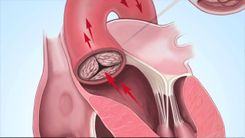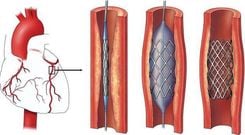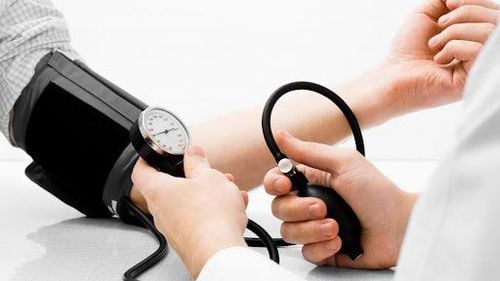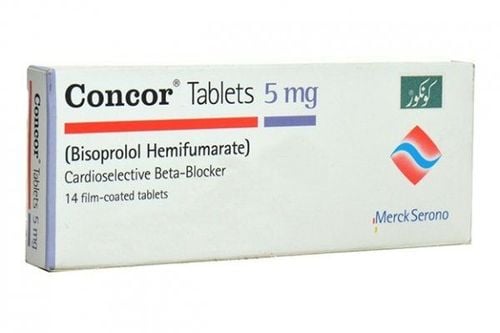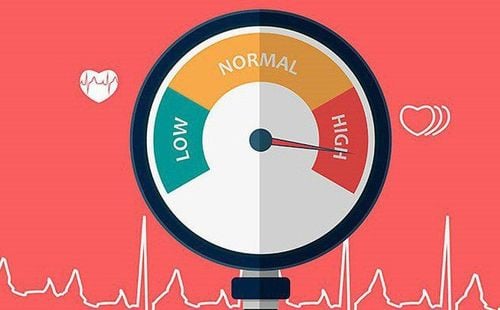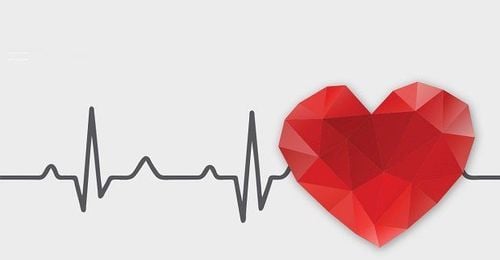This article was professionally reviewed by Doctor Tran Quoc Tuan - Emergency and Intensive Care Specialist, Emergency Department, Vinmec Phu Quoc International Hospital.
Any surgical procedure has potential risks during and after the operation. Postoperative hypotension is a problem that many people encounter. What causes this condition, and how can it be effectively managed?
1. Causes of post-operative hypotension
Normal blood pressure ranges around 120/80mmHg, if equal to or less than 90/60mmHg. When blood pressure falls to 90/60 mmHg or below, accompanied by symptoms such as headaches, dizziness, and lightheadedness, it is considered hypotension. However, the threshold can vary depending on the patient and situation. Causes of low blood pressure after surgery include:
1.1. Anesthesia
Anesthetic drugs used during surgery can affect blood pressure. Changes may occur while you are under anesthesia or as the effects wear off. For some individuals, anesthesia lowers blood pressure. In such cases, doctors closely monitor the situation and administer intravenous medications to stabilize blood pressure.
1.2. Hypovolemic shock
Hypovolemic shock occurs when the body goes into shock due to severe blood loss. Losing a large amount of blood during surgery can cause low blood pressure. A decrease in blood volume also means a decrease in blood supply, making it difficult for organs to function properly.
In case of low blood pressure after surgery due to hypovolemic shock, you will be treated in the hospital. The goal of treatment is to replenish and restore circulating volume in the body before damage occurs to vital organs (especially the kidneys and heart).
1.3. Septic shock
Sepsis is a life-threatening complication caused by bacterial, fungal, or viral infections. It causes the walls of small blood vessels to leak fluid into the interstitial tissues. A serious complication of sepsis is called septic shock and often presents with significant postoperative hypotension.
Sepsis is treated in the hospital with methods such as antibiotics, volume replacement, and monitoring. To treat low blood pressure after surgery, you may be given vasoconstrictors. These help blood vessels constrict to increase blood pressure.
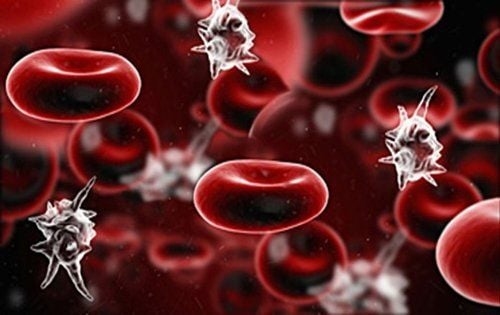
2. Managing Postoperative Low Blood Pressure
Low blood pressure after surgery puts patients at risk of damage to vital organs such as the heart and brain due to lack of oxygen. Postoperative hypotension occurs when patients are in the hospital being treated for emergencies such as blood loss or a heart attack.
However, low blood pressure after being discharged home can be dangerous if the patient does not receive proper care. Here are some ways to manage low blood pressure at home after surgery :
- Stand up slowly:
This helps to slowly stretch the blood vessels, making it easier for blood to circulate. After waking up, avoid standing up immediately. Instead, transition gradually from lying down to sitting with your feet on the floor. Hold this position for at least 60 seconds to allow your body to adjust, then gently swing your legs for 1-2 minutes before standing.
- Do not use stimulants such as coffee and alcohol:
The reason is that both of these substances cause dehydration, leading to low blood pressure.
- Eat small meals:
Some people have the habit of eating large, high-carb meals, which can cause a sudden drop in blood pressure immediately after eating, referred to as postprandial hypotension or orthostatic hypotension. Therefore, you should maintain small main meals with low carb content and add healthy snacks between main meals, which will have the effect of increasing blood pressure for people with postoperative hypotension.
- Maintain proper nutrition:
Many patients after surgery experience appetite loss. During this time, not supplementing enough nutrients is also the cause of low blood pressure after surgery. This is when the body requires a lot of energy for the recovery process. Individuals need to provide enough energy for the body, therefore, adequate nutrition, especially protein, is especially necessary for the wound healing process.
- Drink plenty of water:
Dehydration is a major cause of post-operative hypotension. Individuals need to add more water to help prevent post-operative hypotension effectively. Increased intake of filtered water and electrolyte-rich drinks such as coconut water will help prevent symptoms of low blood pressure.
- Increase salt intake:
Doctors recommend that if patients add more salt to their food or take salt tablets, they can prevent post-operative hypotension.
- Using licorice root:

Licorice root is considered a good herbal remedy for treating low blood pressure in traditional Chinese medicine. It supports adrenal function and regulates blood pressure. It can be taken directly or in capsule, tablet, powder, or tea form. If you are taking blood thinners, potassium, or blood pressure medications, consult your doctor before using licorice to ensure safety
According to experts, after surgery, patients need to rest, take medicine, and eat well to prevent post-operative complications, especially low blood pressure after surgery. After returning home, patients need to follow doctor's instructions.
However, if low blood pressure does not improve and persists with symptoms such as dizziness, lightheadedness, blurred vision, nausea, dehydration, chills, or fainting, patients should see a doctor for timely treatment and care.
Dr. Tran Quoc Tuan has 12 years of experience at Vinh Long General Hospital, Gia Dinh People's Hospital, and Nguyen Trai Hospital. Currently an Emergency Specialist at Vinmec Phu Quoc International Hospital.
Vinmec International Hospital is a trusted healthcare provider for treating blood pressure disorders, equipped with expert staff and modern technology to ensure effective treatment outcomes.
To arrange an appointment, please call HOTLINE or make your reservation directly HERE. You may also download the MyVinmec app to schedule appointments faster and manage your reservations more conveniently.
